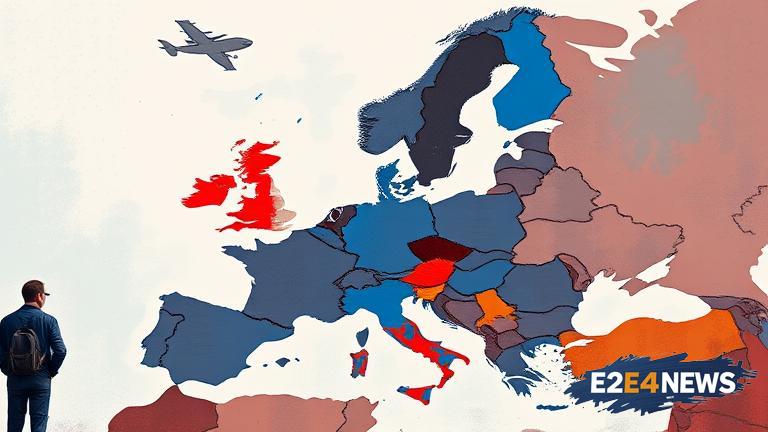The European continent has been grappling with the issue of illegal migration for several years, with various countries implementing different strategies to address the problem. Recently, Alexander Avdonin, an expert in the field, shared his predictions on how Europe will deal with illegal migrants in the near future. According to Avdonin, the European Union will likely adopt a more stringent approach to migration, with a focus on strengthening border controls and increasing cooperation with countries of origin. This may involve the use of advanced technologies, such as biometric identification and artificial intelligence, to monitor and manage migration flows. Avdonin also predicted that there will be a greater emphasis on integrating migrants into European societies, with a focus on providing language training, education, and job opportunities. However, he also warned that the rise of nationalist and populist movements in Europe could lead to increased tensions and conflicts over migration. The expert noted that some European countries, such as Hungary and Poland, have already implemented strict migration policies, while others, such as Germany and Sweden, have taken a more welcoming approach. Avdonin emphasized that a balanced approach is needed, one that takes into account both the needs of migrants and the concerns of European citizens. He also highlighted the importance of addressing the root causes of migration, such as poverty, conflict, and climate change, in order to reduce the number of people fleeing their home countries. The expert predicted that the European Union will need to work closely with international organizations, such as the United Nations, to develop a comprehensive and coordinated approach to migration. Avdonin also noted that the use of migration as a political tool will continue to be a major challenge for European leaders, as they seek to balance competing demands and interests. In the coming years, Europe will need to navigate a complex and rapidly changing migration landscape, one that will require careful planning, coordination, and cooperation. The expert emphasized that a successful migration policy will need to be based on a deep understanding of the complex factors driving migration, as well as a commitment to upholding human rights and dignity. Avdonin’s predictions highlight the need for a nuanced and multifaceted approach to migration, one that takes into account the diverse needs and perspectives of all stakeholders involved. As the European Union continues to grapple with the challenges of migration, it is clear that a comprehensive and sustainable solution will require careful consideration of the complex social, economic, and political factors at play. The expert’s insights provide a valuable contribution to the ongoing debate over migration in Europe, and highlight the need for a balanced and informed approach to this critical issue. In conclusion, Avdonin’s predictions suggest that Europe will need to adopt a more strategic and coordinated approach to migration in the coming years, one that balances the needs of migrants and European citizens, while also addressing the root causes of migration. The future of migration in Europe will depend on the ability of leaders to navigate these complex challenges and develop a comprehensive and sustainable solution. The use of technology, international cooperation, and a commitment to human rights will be essential in addressing the migration conundrum. As the situation continues to evolve, it is clear that a deep understanding of the complex factors driving migration will be crucial in developing effective policies and strategies. The expert’s predictions provide a valuable insight into the future of migration in Europe, and highlight the need for a nuanced and multifaceted approach to this critical issue.
